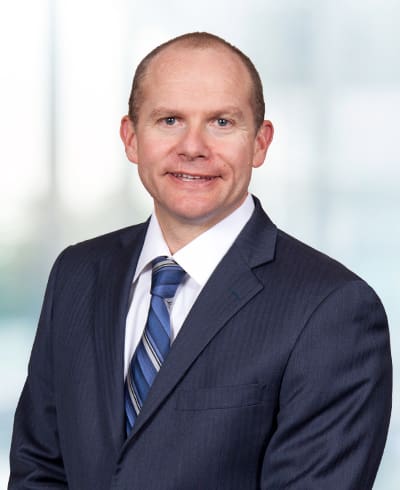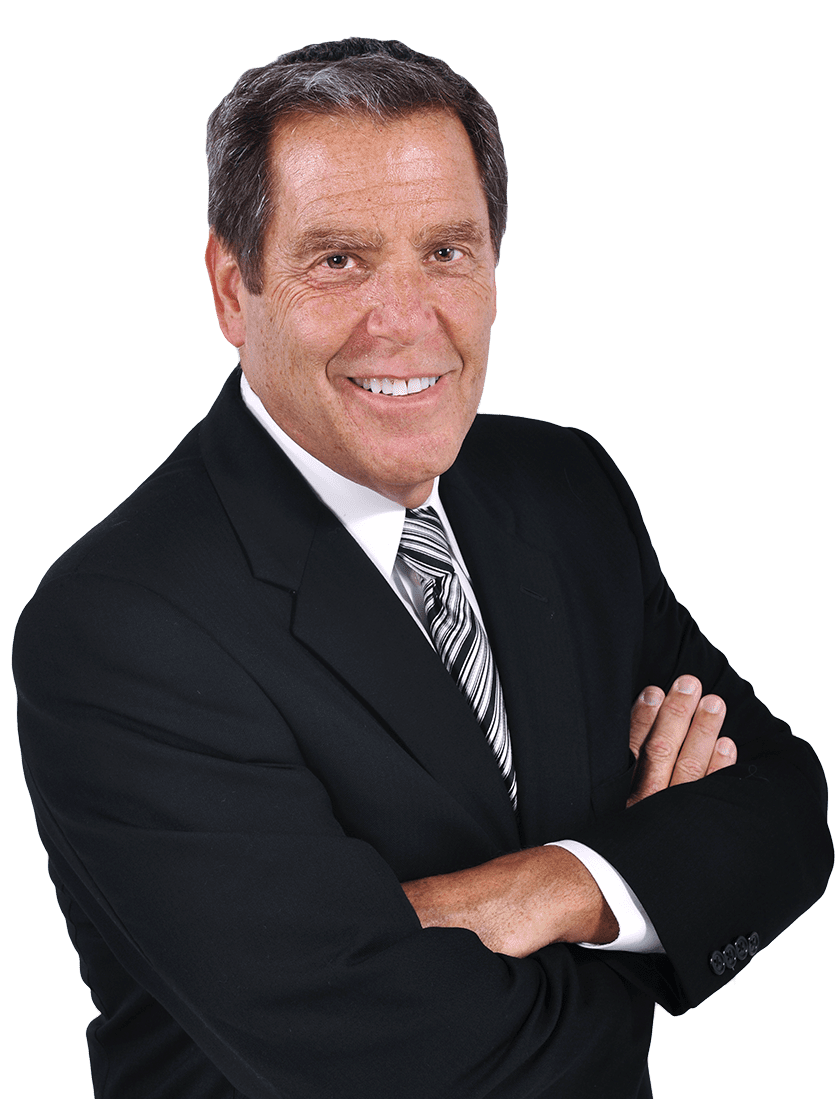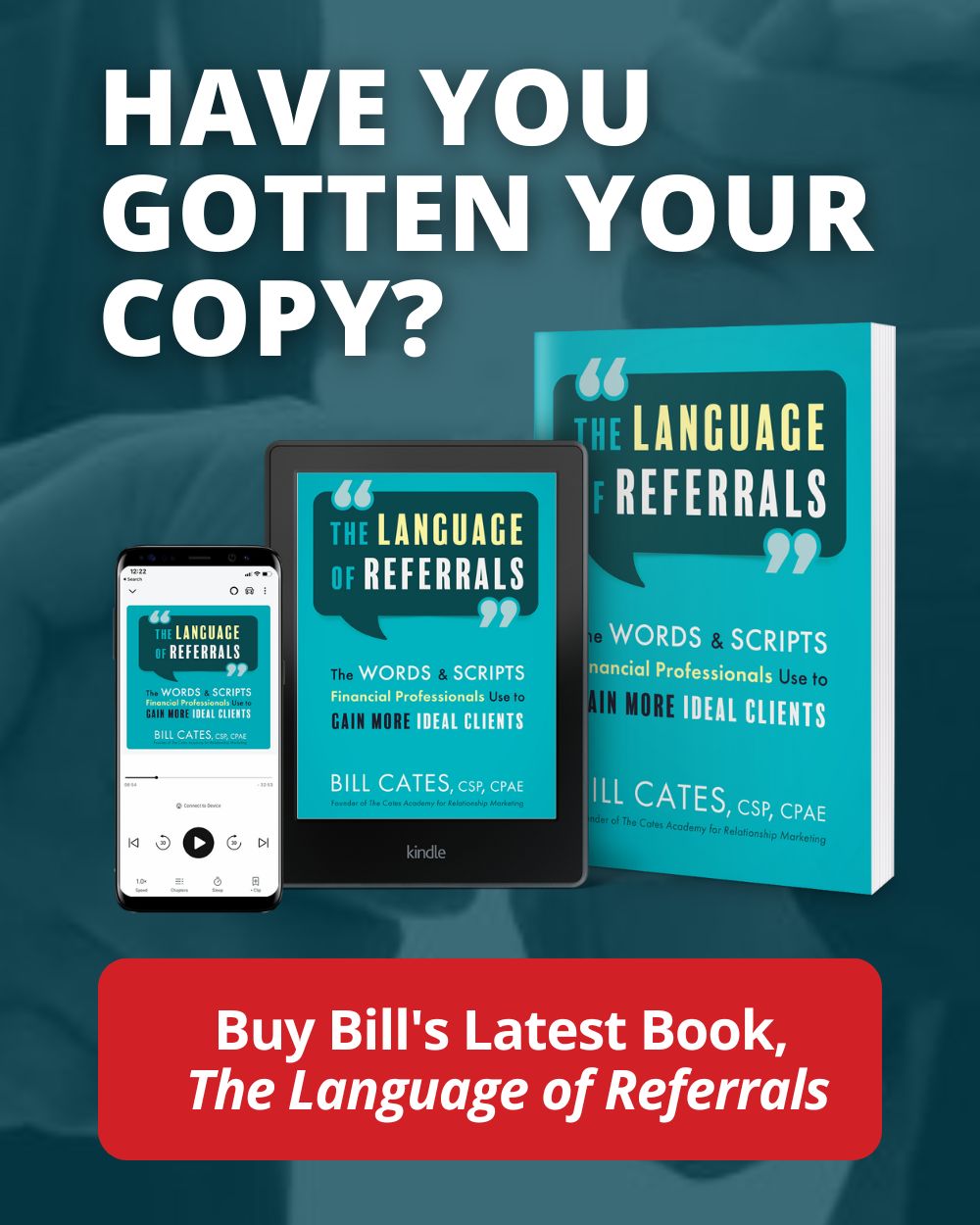Check Out Bill Cates’ NEW Top Advisor Podcast™
Interviews with Top Advisors for Top Advisors!
Top Advisor Podcast™
Ep. #20 – Cultivating a Company Culture That Drives Long-Term Success with Scott Leibfried, ChFC®, APMA®
How much of a difference does company culture really make for your clients and your employees?
In this episode, Bill invites Scott Leibfried to talk about the “Premium Client Experience” and how his years in the industry have helped him develop the toolkit to strengthen his clients’ and employees’ relationship with his business.
Want More Top Advisor Podcast Episodes? CLICK HERE!
–
Bill and Scott discuss:
- The culture of Scott’s business, and how it has evolved as they have grown
- What made Scott think deeper about the importance of work culture
- How company culture impacts every component of a business
- How Scott’s employees’ values shaped their culture, and cultivated long-term success
- How the “Premium Client Experience” demonstrates the way that little touches can make a big difference
- …and so much more!
Resources:
–
Connect With Bill Cates:
-
Show Transcript
Welcome to the Top Advisor Podcast brought to you by ProudMouth’s PodRocket Academy. I’m your host, Bill Cates, creator of the Cates Academy for Relationship Marketing. In each episode, I interview one of our industry’s top performers, getting them to pass on their secrets to success to you. So that you can impact more lives and generate more income. Now onto the show.
BILL: Welcome. You know, before we get started, I want to let you know about a guide I’ve created that brings together some of my latest thinking in the area of referrals, introductions, and communicating your value. While the guide is free, I still think you’ll find it quite valuable. Go to ExponentialGrowthGuide.com.
Now have you heard the expression, “Culture eats strategy for lunch”? There’s some debate as to who said that first, some say Peter Drucker, though there seems to be evidence to the contrary. Nonetheless, what it means is that the culture of an organization will dictate what strategies, or really should dictate, what strategies will be used in that organization to produce the results you want.
And as a successful financial professional, what does that mean to you? Well, I contend that foundational to your success or not the strategies you choose to put in place for your business, although those are important, but rather the culture you build for your business, your culture will determine the strategies that are right for you.
Every business has a culture, either on purpose or by default. How about yours? Are you leading your business with the intent of creating and sustaining a specific culture or has your culture grown without much purposeful intention? I believe that if a culture is based on a strong set of core values and you put strategies in place that reflect or are in line with those core values, those strategies will actually have a much better chance of creating your desired results.
My top advisor guests for this episode has deliberately done that. He’s built a culture designed to provide his clients with the best possible experience and at the same time, allow his firm, including his staff to flourish. So the net result of this intentional culture is that his clients do his marketing for him. Meaning they have become advocates for him. They send qualified prospects to him on a regular basis. And who wouldn’t want that. And he’s been able to retain and attract great talent for his team, which I know is always a challenge.
So Scott Leibfried became a financial advisor in 1998. When he founded Stack Stone Wealth, a private wealth advisory practice, headquartered in Dubuque, IA.
Scott is definitely not all work and no play. He became a pilot in 2011, flying every week for business. He plays tennis, pickleball. I’ve heard those two don’t normally go together. That one will screw up the other. And has recently picked up golf and Scott I don’t know if you’ve discovered yet that people, most people have a love, hate relationship with golf. It’s never too late to stop.
Welcome Scott Leibfried, APMA, ChFC. Welcome to a Top Advisor Podcast.
SCOTT: Oh bill. Thanks so much for having me today and for a great intro. It’s just a thrill to be here with you and discuss trade best practices and helping those in our industry that practice our craft to become excellent.
BILL: Great. Well, it’s this willingness to share ideas that permeates this industry, really, not everybody, unfortunately, has that attitude, but most do. And I know you do.
For those listening, Scott and I met on a panel at a Dynamic Directions conference in Nashville. And I know that in addition to everything else you do, Scott, you’re one of Dynamic Directions, top-level coaches.
I was so impressed by your message that I knew right away I wanted to get you as a guest on my podcast. Even halfway through the panel, I said, “Okay, this guy is going to make a great guest.” But before we get to the topic at hand, that is attracting ideal clients and great talent by defining and building your culture.
Tell us a little bit about your practice, such as the main type of work you do for your clients. How many team members, things like that. So our listeners have a little more context about where you’re coming from.
SCOTT: Sure thing. Our practice, our main offices are in Dubuque, Iowa, and we have two other offices in Rockford, Illinois, and in Lake Geneva, Wisconsin.
There’s 20 total members on the team across the three sites. 13 financial advisors and there are only two that are not fully licensed. So a lot of paraplanners, we believe big in getting everybody as many of us as possible educated and licensed, and it shows that we’re serious about our craft and our business.
We just went over the 1.3 billion under management here this year and we’ve grown both organically and through acquisition. But last year it was a great year for organic growth. We’re intentional about that as well as, as you know, just about everything that we do.
We serve the millionaire next door. I’d like to say it’s the responsible mindset person that values advice and is fine paying for it. We provide goal-based advice for every client and meet them where they are from the business relationship perspective. So, that’s a little summary in a nutshell of who we are and where we’re at and where we are now, but we’re always working on growing.
BILL: Yup, of course. And I think people can see now, staff of 20 culture is always important, but really becomes important as you grow larger.
I’m just curious about something, you got your pilot’s license, I guess in 2011 or something like that. Do you use it to visit clients? Do you have clients in different parts of the state or country, or is it just for fun, for travel? I’m curious about.
SCOTT: Oh, my Bill. I thought this podcast was about culture. We could spend the whole time talking about flying. It’s just been a joy. It is about 85% business where I’m seeing either clients or our coaching clients. A lot of it’s the coaching clients. I coach other financial advisors. And it serves as just a great tool. And then, you know, going to conferences and other industry meetings, it’s a dream come true. I pinch myself every time I go.
BILL: Yeah, just stay awake at least.
SCOTT: No problem with that.
BILL: I’m sure. So culture building is not a topic that financial professionals talk about much. Right? Yet, as I mentioned, I believe that culture building is pretty fundamental to someone’s ability to maintain long-term success in this business. Especially as one grows and scales as you have. Would you agree with that perspective and from there, what triggered your quest to build a culture?
What made you start thinking about culture and being more purposeful?
SCOTT: Yeah, well, it was several years ago, probably five years ago or so. I was really triggered by I read a book called the New Gold Standard, it’s about the Ritz Carlton. And if you haven’t heard of it, it’s a great book.
And when I think about the Ritz Carlton, as I was reading, they were talking about, they have all these, they have hundreds of hotel sites around the world and they need to be assured that their guests around the world, no matter where their guests go, if they’re going to the Ritz Carlton, they’re getting the premium experience as a guest.
And the challenge is every individual has their own personal definition of what premium is, or what clean is. I mean, if in my own house my wife’s definition of clean is different than my definition of clean.
BILL: Boy, can I relate to that!
SCOTT: Yeah. So, you know, it’s, just really hit me with our businesses and nowadays, and in our business, it takes a team of people. I mean, even if it’s a team of two or a team of 20, it’s a team of people. And between any two individuals, there is a culture. There’s a dynamic, there’s a culture.
And I believe especially as the team grows larger unless we’re intentional about defining the culture it may grow into something that we really don’t want. So that’s really where it hit me, we need to be intentional defining the culture in our business.
BILL: Yeah. And I bet you, once the dynamic gets created, sometimes it’s hard to shift it back to a direction that you wanted to. It’s probably easier to get started at first but you had to do that. Obviously, you had to establish a culture and I know that you developed something, maybe borrowed it from the book, but you developed it for yourself, that you call a credo.
And so I looked up credo in the dictionary and it comes straight from the Latin word, meaning, I believe, which kind of makes sense. So some synonyms are doctrines, tenants, philosophy. So for you, I’m guessing your firm’s credo is a set of beliefs or even standards that guide many of you, if not all of your decisions that you make.
And I mean, is that in line with your thinking? Is that what your credo is? What’s your perspective on you developing your credo and then we can get into what it is, but I want to hear you talk about that a little bit.
SCOTT: Oh, sure. Really where we started with developing it is all the individuals on the team at that time. Now we have a lot of additional people since, but at the time we started out with the individuals on the team, we did individual core value exercises. And so everybody went through the exercise of what their personal core values are. And then we took a whole day and had a team-building offsite where every individual had the opportunity to share their core values with the others on the team, their personal core values.
And as everyone started sharing with one another we learned a lot about one another that, you know, certain things we didn’t know. And it was great to understand that I didn’t really know that person put the same amount of emphasis on family that I do. And so on and so forth.
And so then out of this, we were able to develop the core values or the credo, and we call it the credo for our business, for Stack Stone Wealth. And so that’s really how it came to be. But then there’s developing it as one thing and it’s taken the time and the energy, it’s a costly investment for everybody that shut down for a day and talk about our personal core values. There’s business to be done, you know? And, and so that was a that’s a big business to do that sort of thing. And so with making that type of investment, I wanted to make sure that we were going to get a return on it after it was built.
BILL: Right. So what I like to do is, is go through each one. We have five, right? Just mention what it is, flush it out a little bit. What means to you, how does your staff apply it to the business? And then kind of wrapping each one up with, what are the benefits to you, to the clients, the team?
So let’s just flush each one out. We’ll do maybe three of them. And then we’re going to have a really quick little break and then we’ll finish them up. And there are some other things to talk about as well. But credo number one, what’s the belief, what’s the value?
SCOTT: Yeah, sure thing. And, really what I think is so important is that when others create their credo and this is what I coach on. It’s important that it’s yours and you believe in it and you own it. And so, the creation of and developing of your own is really where its powerful. And so the first point that we came up with is that at Stack Stone Wealth, we practice professional integrity. And so every single word in the credo is meaningful.
And just the word “practice” we’re implementing, we’re working on it. And professional, I think that exudes it’s itself. This is our craft. This is our profession. And I think when you say profession people know what you’re talking about.
BILL: Yeah. It elevates it. And “integrity”, how does that show up? What does that look like? Internally and or with clients?
SCOTT: Oh, sure. You put “professional integrity” together that can come into your pricing or the choosing to onboard a particular prospect or not. Part of the professional integrity is this a relationship that can last? And if the value proposition isn’t set right from the beginning or in some cases, if it’s a long-term client relationship, sometimes we need to reset the relationship. And in that, we’re thinking about, and this is where it guides our decision-making is, “Okay. Is this relationship, are we practicing professional integrity here or is there something that needs to change?” Because I also think in terms of, professional integrity can mean economic integrity as well. As part of professional integrity, we’re professionals and we want to get the value proposition set right?
So there’s an example of how that can guide us into the decision-making when we’re putting a relationship proposal together for a new prospect, we’re thinking in terms of, “This is the right value proposition.”
BILL: So when some people think of integrity, you’re doing what you say you will do.
And I’m sure that’s part of it too. Right? But it’s also more than that. It’s I guess practicing professional integrity could also mean following through on all of the other items in the credo, right? It’s like, this is what we said is important to us, what we believe, what we want to do.
And we’re out of integrity if we’re not following those things. Correct?
SCOTT: Right. Yeah, absolutely. And the consistency that goes along with integrity, you know, doing it one way for say one prospect or client, and then totally switching it up for another prospect or a client. Or internally I’m thinking in terms of how are we treating one another on the team and among the team, are we treating one another, we’re all professionals and everyone that plays their own role on our team.
And we’re all professionals, we need to uphold each other through this professional integrity that we’re talking about here.
BILL: Gotcha. Good. All right. Number two.
SCOTT: The second one here is we render a premium client experience. And so that’s, in our business we’re not low cost and low cost of course is low relationship, low value.
And so we have to render the premium client experience because if the value proposition is not low cost, it needs to be elevated. And we can’t just have an elevated pricing structure with our clients without delivering on that. And, the premium client experience goes to provide goal-based advice for every client relationship And it goes to everything with a premium client experience we have it so if the lead advisor isn’t available, there’s always an advisor that’s trained and seasoned that can really handle just about any incoming clients question or call, so they don’t have to wait or they don’t have to wait a day for somebody to call them back. They’re getting immediate help with their issue.
And it’s everything. It’s everything from the smell of the lobby is the premium client experience. It’s everything from the type of water bottle they get when they come in it’s not what was on the sale rack at the grocery store. It’s Fiji. It’s just all these little things add up to be something huge.
And so that’s our mindset. And in this, it’s the decision-making that people on the team, when they’re faced with the decision, it’s things like, okay, is this rendering a premium client experience, or how does this render a premium client experience? And then it doesn’t always rest on the leadership’s shoulder on making decisions. They’re empowered to make their own decisions based upon what we have set forth here as being our credo.
BILL: I’ve always had a standard. I call it a standard here, my business, and always choose in the direction of higher quality. So when there’s always a choice, like for you, the choice between what bottle of water we’re going to get, or what chairs we’ll buy for the office or whatever it may be. We always choose in the direction of what is a higher quality. And so I think that applies or that fits to what you’re talking about. Does this create that premium experience or not? Does it add to it? Does it take it away from it?
All right, so we’ve got integrity. We’ve got premium client experience, which I’m sure your clients feel. They notice sometimes it’s little things. Sometimes it’s big things. What’s credo item number three?
SCOTT: Number 3 is, enhance our capabilities. And this is all about, there’s always more to learn and we can’t rest on what we know today.
We need to be striving to deepen our understanding and whether it be the new CRM capabilities or we’re really happy, we have two people sitting for the CFP exam here in March. And so anything looking to enhance, where we’re at today cannot remain the same and we need to continue.
And so that’s, it’s always at the top of our mind, how can we improve? And that’s where the enhancing of capabilities comes into our credo.
BILL: Good, good. You know let’s do one more and then we’re going to do a break and we’re going to talk about something you call the X factor, which I think people will find interesting, but let’s do one more and then we’ll take our word from our sponsors. So what’s number four?
SCOTT: Number four is, strive for prosperity.
BILL: Oh, okay. So it’s not just about, well, let’s put it this way. It’s also about building a profitable business, right?
SCOTT: Well, that’s part of it. We cannot forget in our business if we’re not bringing in new business. And you know, the data suggests that generally if you’re doing everything great, you’re going to have about 4% natural outflows, just because people taking distributions, people pass away and people give it the charity. And so just to stay even we need to be onboarding new clients.
We need to be bringing in more business. And so this is like, we cannot forget about this and so striving for prosperity. But also, striving for prosperity for the business at large striving for prosperity for the individuals on our team, and helping our clients strive for their own prosperity is really number one.
And then everything comes out of that. And so that’s in a nutshell, you know, that the striving for prosperity, keeping the importance of selling on the forefront.
BILL: And I think I remember when we chatted to prepare for this, that was kind of one, I mean, all of these were developed in conjunction with you and your team and that one was kind of one you insisted on. Is that, am I getting that right?
SCOTT: Yeah, you’re right on. And you know, out of everybody’s personal core values is at the top of the list was always family. That’s a given now. As a business. this is something that needs to be important and really needs to be at the forefront.
And if it’s not in all things, it’ll wane over time. Right?
BILL: So everybody’s involved in one way or another in the prosperity of the clients and the prosperity of the business. Otherwise, there is no business to serve the clients. Right. So I know there’s one more in your credo and there’s something that you called the X factor I want to talk about. So a few other questions I have for you. I hope folks are finding this helpful. But first let’s take a real quick break, with a word from our sponsor.
[SPONSOR MESSAGE] This podcast is sponsored by ProudMouth, the influence accelerators. It’s tough to be seen as an expert if you’re spending most of your time as a salesperson, that’s why we help industry experts like you spend less time selling and more time advising by turning you into trusted subject matter authority.
We help amplify your influence over a growing audience of magnetically attracted fans who will chase you down instead. Visit ProudMouth.com to learn more.
BILL: With me today is Scott Leibfried, founder, president and CEO of Stack Stone Wealth, as well as a top coach with Dynamic Directions.
He helps other advisors with this culture building thing, and we’re discussing how to build a culture with your practice to provide high level client experience, to attract more high level clients and to retain and attract high level talent. As promised, I want to finish up with the credo item number five, and then we’re going to get to what Scott called the X factor and then a couple other questions as well.
So Scott item number five in the credo, please.
SCOTT: Yeah. Item number five in our credo is, impact our community in a positive. There’s so much with this. You know, a lot of it goes without being said. I think just like the other points in the credo, we really want to put this on the forefront of our minds and to be good stewards within our community and be involved with our community and giving back to our community, there’s just so much good that comes out of it. And there’s a lot of congruency that comes from this. And it adds a lot of. It just adds a lot of meaning to our team and our culture. And then we share how everyone’s participating in adding value within the community.
Cause you know, we live in the USA and we’re hit the lottery just by being here and it’s just feels good to participate and give back.
BILL: So if I got this right, we’ve got integrity, right. Making sure that we act with integrity. I know it’s not the exact words I’m getting the keywords here.
Provide a premium experience to clients. Enhance capabilities, ongoing improvement, ongoing education. Prosperity contributes to the prosperity of the clients as well as the firm. And then the last one was that community participation and give back and be active in the community.
So the X factor, what is that? How does that apply to this conversation?
SCOTT: The X factor is basically, don’t be intentional and create and go through the investment in creating a credo or your core values and then put it on the shelf. And I think we may have all experienced in our lives, where, while this is great. And then. It just gets put up on the shelf and we look at it maybe a year later.
So that really the X factor is at least on a weekly basis. As a team, we talk about our credo and it is at the forefront. So we’ll go around the room in a team meeting and every individual has their opportunity and they’ll pick out one bullet say this week I rendered premium client experience. And then they’ll go on to tell a little story what they did that hit on that particular credo point.
And then the next person might pick another credo point. And then as we’re telling these stories to one another there’s a lot of overlap and it brings it alive.
And it’s always top of mind and it’s in front of everybody all day on their computer screen. So the X factor is whatever a business would develop, and if we’re being mindful of being intentional and defining who we are it’s keeping that really at the surface and not forgotten.
BILL: Right. It makes sense. So you’re living it, breathing it, talking about it all the time. And not just something you put on the shelf. So, let’s shift just a little in the sense of how has this work that you’ve done and continue to do, I think it’s pretty obvious how it creates the client experience and enhances the client experience, but I’m curious about how it impacts client acquisition?
Is there a direct line to what you can see how this culture you’ve built has increased client acquisition? Is it a dotted line? Help us understand that a little bit.
SCOTT: Well, I’ll start by saying that our office is about 15 minutes from the field of dreams. And so that whole thing is if you build it, they will come.
That’s so much of what we’ve seen is as we have zeroed in on this, I think in terms of with our business and client acquisition is be a magnet. And so build your magnet because it’s every one of these points and then out of this with existing clients, if it’s long term clients, they’re seeing that, “Wow, this really better than it ever has been”. Where we’ve really seen a lot of gains after we built the credo and been intentional with things. And then out of that is been our new client onboarding experience. And it really has started the snowball. Especially the last three years, I would say our intentionality around every little aspect to the client onboard and experience, it’s such a wow, that it’s really fresh and top of mind for these new clients and that’s where we’re seeing the referrals come more from the newer clients and in a word now our long term clients have experienced. They’ve seen the change. They’ve definitely seen the change, we’re getting referrals there too, but especially that new client onboarding experience.
BILL: Yeah. And you know, we already have one interview has been posted with Bryan Sweet, who talks about his onboarding experience. He calls it the 90-Day Dazzle. We have an episode with Rod Gibbings who talks about what he calls the Transition Navigator. This onboarding that you just mentioned. Some people think of it as the first 60, 90 days could be to be longer, but they’re actually really is an opportunity to stand out and to become referrable very quickly in a new relationship when you show up the way that you guys show up with that premium experience.
So I wanted to just finish up Scott with a question about what are you optimistic about now in terms of your business, in terms of the industry? What gets you excited moving forward right now?
SCOTT: For our industry at that, that time that there’s a lot of assets and there’s a lot of need that’s in transition, there’s this supply-demand thing and there’s a lack of supply of good advisors out there. And, advisors are retiring at a faster pace than then new people are coming into the business.
And so we have this enormous opportunity and which we need to be careful with, I think because it’s about getting the value proposition right. And that may involve saying no to some opportunities that we might have been tripping over ourselves to get 10 years ago. We might need to say no to some of these things so that we open up space for the right-sized opportunities moving forward. There it is. And you know, another piece of data I was just looking at here is that responsible mindset, $500,000 plus client or prospect market call it what you will. Just two years ago, the average age was 54. Now it’s 49. This was such an ah-ha for me is we’ve just been through this really big, how many years have we been talking about it’s the baby boomers and it’s the boomers in this massive transition on the boomers and some of the recent data suggesting in a large way that we’re at the end of that wave. And now this next wave is in their forties and fifties right now. And the wave of opportunity. These people are in their forties and fifties, and these people have different expectations than the people that were in the prior wave, just different expectations.
And we need to be prepared to deliver on the expectations of this next wave. And part of my motivation is fear of failure and I want to be ready. I want to be ready to serve and be ready to be where this next wave of opportunity is.
BILL: Yeah, that makes sense. And you’ve got the staff to do it.
Our guest today has been Scott Leibfried, founder, CEO, of Stack Stone Wealth, headquartered in Dubuque, Iowa, with a couple of other offices. Scott, thanks for being my guest on Top Advisor.
SCOTT: Thanks so much, Bill. This has been a blast and thank you for all the great work that you do. You provide such a great value to all of us out here in bringing this sort of information. It’s just awesome.
BILL: Great. Well, thank you for that. So, for those listening, if you haven’t already make sure you head over to ReferralCoach.com/Resources. Sign up for our weekly tips, and access a ton of free guides and scripts. Take a look at our Cates Academy for Relationship Marketing.
This is Bill Cates, reminding you that ideas do not make you more successful. It’s only acting on those ideas that will bring you the success you desire. Thanks for listening.
This is Bill Cates and you’ve been listening to the Top Advisor Podcast sponsored by ProudMouth, be sure to click the subscribe button so you don’t miss the latest show, and feel free to share this and other episodes with your colleagues.
And if you want to learn more about the work I do with other topics just go to ReferralCoach.com.
About Our Guest

Scott Leibfried APMA, ChFC is a Private Wealth Advisor at StackStone Wealth, a private advisory practice of Ameriprise Financial Services, LLC. Scott aims to develop a personalized financial plan for his clients so they can gain the confidence they need to focus on what matters to them most in life.
He has built a culture design to provide his clients with the best possible experience in the workplace, and at the same time allows his firm, including his staff to flourish! The net result of this intentional culture is that his clients do his marketing for him, meaning they have become advocates for him. They send qualified prospects to him on a regular basis. He has been able to retain and attract great talent for his team.
Scott became a private wealth advisor in 1998 when he founded StackStone which headquartered in Dubuque. He also became a pilot in 2011, flying every week for business. He frequently plays pickleball and tennis as well as golf when he has the chance.
Connect with Scott Leibfried
![]()
Never Miss an Episode!
Click below to subscribe on your favorite podcasting platform.
P.S. Don’t keep Top Advisor Podcast a secret … share with a friend or colleague!
Click Here to Subscribe Tell a Friend

About Your Host
Bill Cates, CSP, CPAE, works with established financial advisors to speed up their growth without increasing their marketing budget. Advisors tap into Bill’s proven process to multiply their best clients through introductions from advocates and Centers of Influence (such as CPAs and attorneys), communicate their value proposition more effectively, and create a reputation in a profitable target market. Bill helps advisors move from push prospecting to magnetic marketing – to attract more Right Fit Clients™.
Bill is the author of four best-selling books, Get More Referrals Now, Don’t Keep Me a Secret, Beyond Referrals, and Radical Relevance. Bill is a highly sought-after international speaker and coach, as well as the founder of The Cates Academy for Relationship Marketing™.
Do you know someone Bill should interview (including yourself)?
Do you have a topic you’d like to see covered?
Contact Bill Cates directly: BillCates@ReferralCoach.com







